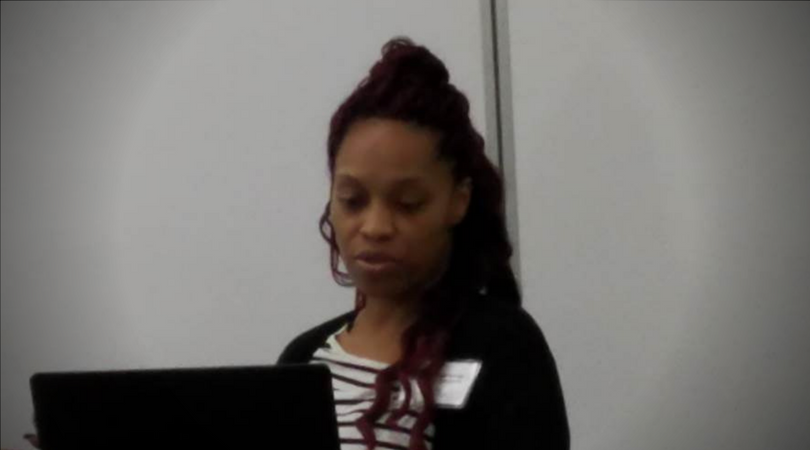
Denita Jones recently dedicated herself as a resource to Richardson Independent School District, just North of Dallas proper. Her daughter was diagnosed with ADHD, a learning ability difference that causes individuals to frequently lose focus. She advocated for accommodations for her daughter in a school that had reportedly rarely dealt with the learning difference. As a published researcher, Jones specializes in mental health, specifically for juveniles. Her team’s monumental findings discovered that mental illnesses are at risk to be highly undiagnosed in juveniles, especially if they have entered detention centers. She hopes to bring awareness to the phenomenon where it begins, in school districts, in an attempt to eliminate the school-to-prison pipeline.
Jones was born and raised, primarily, in Greenwood, Mississippi. Her mother was an educator and her father worked in law enforcement. Jones believes that her parents occupations have greatly influenced her path towards becoming a public servant, especially one who focuses on the combined forces of the education and prison systems. Her parents instilled the idea that an opportunity is always available to better the community by making sure any resources, dedicated to the citizens, were readily available. Jones has transformed this idea into a lifestyle, by advocating for learning or ability difference accommodations in schools.
This past year, Jones and her family moved to Richardson, Texas with intentions of seeking out a highly rated school district. She wanted to make sure that her daughter, who was recently diagnosed with Attention Deficit Hyper Disorder, or ADHD, had proper learning accommodations as a student. When she enrolled her daughter in courses, Jones had to explain what ADHD was to her daughter’s teacher and what can be done to make learning a smoother process for all parties involved. She emphasized the implementation of Section 504 accommodations, ensures that the child with a disability has equal access to an education, and the federal IDEA Act, also known as the Individuals with Disabilities Education Act, that would allow ADHD learners like her daughter to acquire equal opportunities as a student. Jones’ knowledge in mental health spurred from her previous research, focused on juveniles who suffer from undiagnosed mental illnesses.
Jones regularly presents research across the nation, including a conference for Minority Public Administrators in Washington, D.C. as well as the Mississippi Political Science Association. Her research is focused on the treatment, or lack thereof, of mental illnesses in juveniles, particularly those who pass through detention systems. Jones explained that her research indicates that juveniles in detention centers often have learning disabilities or mental illnesses that go undiagnosed and, sequentially, untreated. This occurs because juvenile detainees are often given a self-administered mental health check on a computer, requiring a mechanical learning skillset that not all incoming juveniles may currently have. By limiting the mental health assessments to be self-administered and on a computer, detainees regularly maintain mental illnesses that go undiagnosed, sparking a chain of release and capture. Jones believes that the best way to prevent this phenomenon from occurring, other than a reformation of the justice system, starts with proper accommodations in our education system.
Jones has begun working within Richardson ISD, with intentions to one day run for school board. She hopes that her background in juvenile mental health can spark the beginning of the end for the school-to-prison pipeline, a phenomenon where juvenile “delinquents” are more likely to shift directly into prison populations. The students who are most susceptible to the school-to-prison pipeline are more likely to be involved in petty crime and dropping out of high school. Unfortunately, the students who are also most likely to be a part of the pipeline effect often suffer from mental illness as well, according to Jones. As an advocate on the school district level, she wants to eliminate this pipeline effect by providing proper mental health or learning difference accommodations for students, allowing them to reach their full potential.





